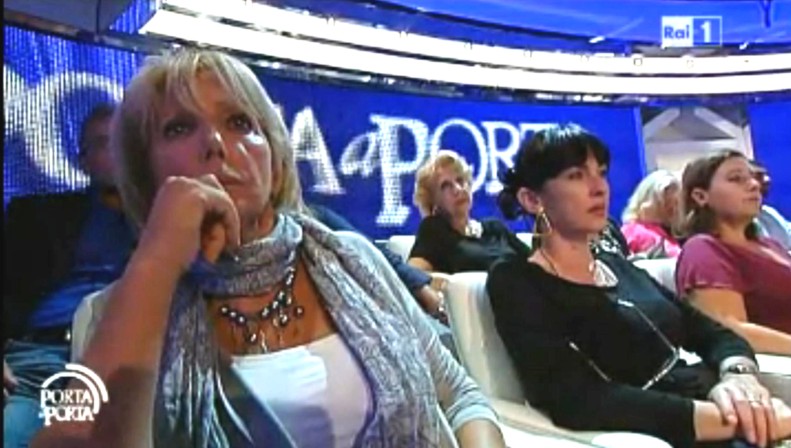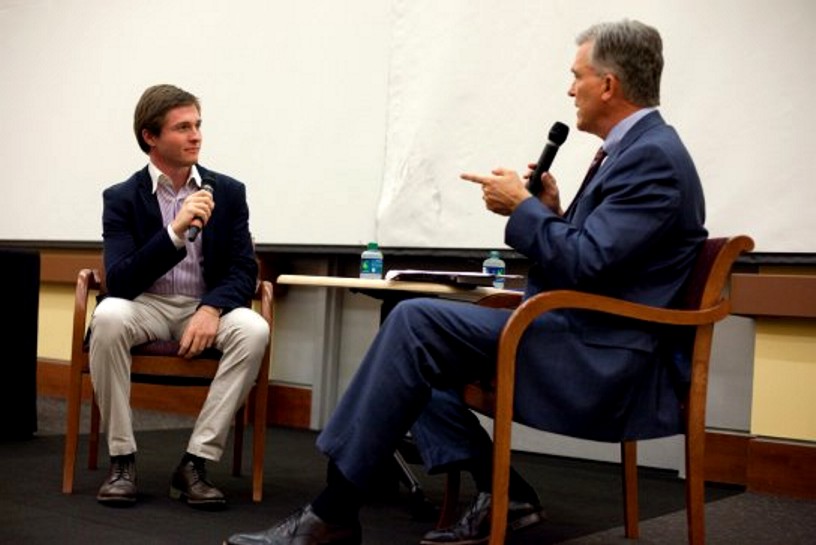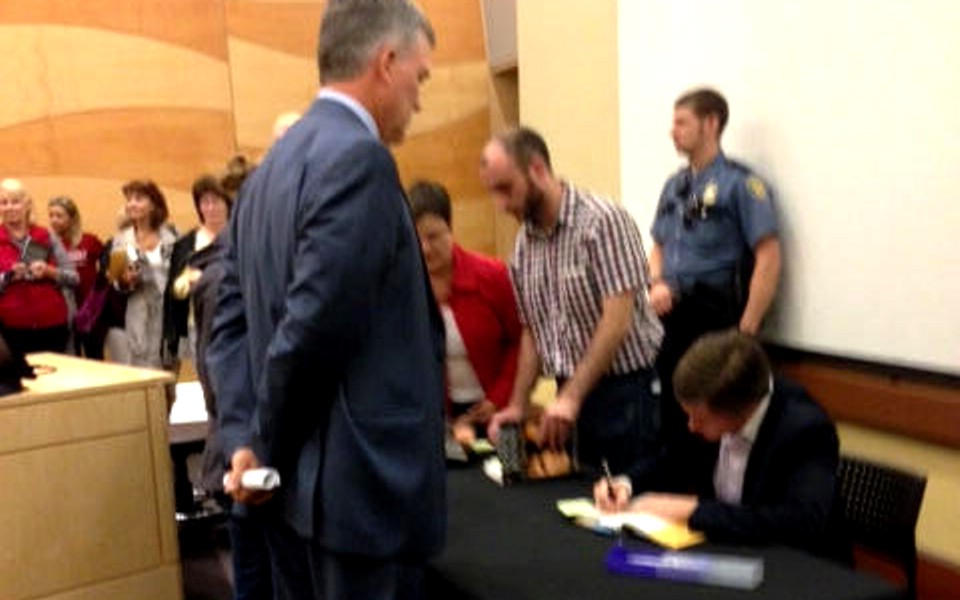
Category: Defendants in court
Wednesday, December 12, 2012
Simon & Schuster Seem To Be Seriously Rattled Over Lack Of Due Diligence On Sollecito’s Book
Posted by Peter Quennell

See this emailed exchange which took place late today.
What Simon & Schuster’s agent is complaining about was a chronological reordering (behind the scenes and not linked to from the front page) of these many corrections here. Our Kindle and hardcover copies were legally purchased. Simon & Schuster put about 1/4 of the book on the front of their own website, and Google Books also carries about 1/4 of the book to read free.
Admittedly, our corrections may have been quite a shock. However, we didnt cause the book sales to tank. All of our past posts on Raffaele Sollecito’s book can be seen here.
*******
Mr Eraj Siddiqui
119 South B Street Suite A,
San Mateo, CA 94401
Dear Mr Siddiqui
Thank you for your “Verified DMCA Removal Request from Attributor” copied below.
The book you refer to appears to contain up to 30 instances of criminal defamation under Italian law and literally hundreds of wrong and injurious statements that are hurtful to many fine officials in Italy.
We have full legal rights to point out the myriad mistakes in the book. In fact a defamation of a prosecutor in the book has ALREADY been admitted on Italian national TV by the writer’s own father in Rome.
That Simon & Schuster apparently failed to do their legal and factual due diligence on the book prior to publishing seems to us to be absolutely nobody’s fault but their own. They are hardly new at this game.
Nice try, but sorry, no cigar.
Peter Quennell
*******
Dear Sir/Madam,
I certify under penalty of perjury, that I am an agent authorized to act on behalf of the Rights Holder identified below, the owner of certain intellectual property rights in the Work(s) identified below.
I have a good faith belief that the information contained in this notice is accurate, and that the page or material listed below is not authorized by the Rights Owner, its agents, or the law for use by the individual(s) associated with the identified page listed below or their agents.
To the extent that the Digital Millennium Copyright Act, the European Union’s Directive on the Harmonisation of Certain Aspects of Copyright and Related Rights in the Information Society (2001/29/EC), and/or other laws and regulations relevant in European Union member states or other jurisdictions apply to your service, if at all, I HEREBY DEMAND THAT YOU ACT EXPEDITIOUSLY TO REMOVE OR DISABLE ACCESS TO THE PAGE(S) OR MATERIAL(S) at the Infringing URL(s) identified below.
Note that in some cases the pages/material may have been removed after the sending of this notice but prior to your review.
My contact information is as follows:
Organization name: Attributor Corporation as agent for Simon & Schuster Inc.
Email: .(JavaScript must be enabled to view this email address)
Phone: 650.306.9474
Mailing address:
119 South B Street
Suite A,
San Mateo, CA 94401
Nothing contained in this letter or in any attachments constitutes a waiver or relinquishment of any right or remedy possessed by the Rights Holder, or any affiliated party, all of which are expressly reserved.
My electronic signature follows:
Sincerely,
/Eraj Siddiqui/
Eraj Siddiqui
Attributor, Inc.
*** INFRINGING PAGE OR MATERIAL ***
Infringing page/material that I demand be disabled or removed in consideration of the above:
Rights Holder: Simon & Schuster
Original Work: Honor Bound
Infringing URL: https://truejustice.org/ee/index.php?/tjmksollecitosbook/P0/
Infringing URL: https://truejustice.org/ee/index.php?/tjmksollecitosbook/P5/
Infringing URL: https://truejustice.org/ee/index.php?/tjmksollecitosbook/P10/
Saturday, October 20, 2012
Exploding Nightmare For Lawyers Of The Defense: Torrent of “Mistakes” In Sollecito’s Hapless Book
Posted by Sara
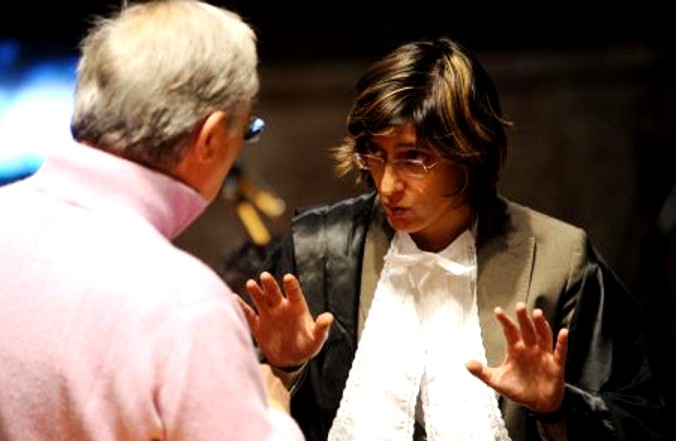
More and more and more wrong facts and libels are being turned up in Sollecito’s pathetic book, both by us here and by an irritated officialdom in Rome and Perugia.
Amanda Knox is rumored to perhaps be mentally unstable and figuratively locked in the attic in Seattle. Now Sollecito seems to have been disappeared back in Italy for his own good as well.
Sollecito’s own lawyers (who have in the past threatened to walk) and his own family have already thrown him to the wolves on Italian TV over just one highly libelous claim and there are an estimated two dozen more still to surface.
Not really a good idea to write a shrill “I’m the real victim here” book unchaperoned, when you have the smug mentality of a 12-year-old. The facts strongly against you. A very bright prosecutor. And a ghost writer whose slobbering over a laughably fictional Sollecito suggests he has a something of a boy-crush.
Raffaele Sollecito has made many stupid claims in his book, but perhaps none is so obvious and more idiotic than his claims about the “lost” emails.
What is it with this guy and the emails? He seems to think (or perhaps, thinks that the readers are stupid enough to believe) that if a computer or a hard drive is destroyed, all the emails in it are lost as well. Come on already, surely they taught him the mechanisms of email in his computer classes.
Look at his statements regarding emails. In chapter 2 (Love and Death) of his book, he describes the morning after the murder -
I’d been up several times in the night””listening to music, answering e-mail, making love””and wanted only to go back to sleep
Right, so he got up many times in the night to answer e-mails. You’d think that this would be his biggest alibi for the night of the murder, right? No, wrong. Raffaele could not prove his alibi because, in his own words -
I did not yet know that the Polizia Postale””supposedly experts in handling technology issues””had seized two of my computers along with Amanda’s and Meredith’s and somehow wrecked three of the four hard disks while trying to decipher them. The bottom line was that the damaged disks were now deemed unreadable. That left just my MacBook Pro to provide an alibi for the night of the murder.
But modern emails DON"T EVEN RESIDE on local hard drives unless one DELIBERATELY downloads them. And even if one does (and hardly anyone ever does) there rarely is reason to completely delete the original, and here there seems about zero reason to do that.
And even if the original IS deleted Facebook and email services have shown under legal pressure that they maintain complete backups going back many months. No way Sollecito’s supposed emails on the night could have been made to simply no longer exist.
Again, when he talks about Amanda and Meredith’s friendship, he says -
If either Meredith’s or Amanda’s computer had survived the police examination, there might have been photographs, emails, and other evidence to point to a more meaningful interaction
Here we go with the elusive emails again. Will someone explain the point of email to this guy? What difference would the local computers surviving or not surviving make to any emails residing on his host’s servers?
He actually has the nerve to criticize the Polizia Postale’s technical competence after making a statement to the effect that he and Amanda could not retrieve their emails as the hard disks were damaged.
Whether the hard disks were destroyed or not, whether it was the Polizia Postale’s fault or not is hardly important here. Admittedly, Amanda is not a “technical genius” (After all, she does not know how to delete messages from her sent items).
But what is stopping this resident technical genius from simply accessing his email box from some other computer or iphone, and printing out a copy from his sent items? Why doesn’t he ask even one of the happy recipients of his emails - by the way, who were they? - to forward it back to him?
Did all of them delete his mails from their in boxes and trash too? Even if we defy all logic and accept that they did, what’s stopping at least one of them from coming forward and testifying that they received a mail from him that night? Did all of them get selective amnesia at the same time too?
Similarly, if any emails that proved the “close friendship” between Amanda and Meredith existed wouldn’t they still be retrievable from Amanda’s mailbox? She could have printed a copy any time. Did she go around deleting all of Meredith’s mails the minute they arrived as well as her own replies to them, and clearing her trash box and all her host’s backups as well, just to be doubly sure they can’t be retrieved?.
Ok, let’s say the emails were deleted. What about the photographs? If there had been any photographs that would establish their “close” friendship, wouldn’t they be there on the camera or phone from which they were taken? Or wouldn’t either Meredith or Amanda have sent them to someone or posted them on their Facebook?
How did EVERYTHING vanish without a trace? If neither of them ever sent the photos to anyone or posted them online anywhere, or even kept them on file, you really have to wonder what was the point of taking them at all.
No one is claiming that Amanda and Meredith were at loggerheads all the time, they might even have gotten along initially. Meredith was not a person who judged people harshly. By all accounts, she did try her best to get along with Amanda, trying to include her in outings and defending her when she got into trouble.
It was Amanda who pulled away saying she wanted to socialize only with Italians. But the fact is that there were clashes and there were differences between them. Trying to make out that they were the best of friends by claiming the destruction of non-existent proofs is not only unbelievable but also utterly stupid.
Like our main poster Hopeful summarized it: this claimed computer genius has never in four years been able to prove he sent an email? Ridiculous.
Thursday, October 04, 2012
Foolish Claims In Book By Raffaele Sollecito: The Courts Are The Most Reviled Institution In Italy
Posted by Machiavelli

It seems that the writers or publishers did not run Sollecito’s verror-prone and defamatory book past any lawyer in Italy.
His own lawyers Maori and Bongiorno seem to have been blindsided. The book-agent, shadow-writer and poublisher clearly did not even run it past any well-infomed and mature person at all in Italy (his own father included).
Francesco Sollecito says the book was not accepted for publishing in Italy because there was no demand. Perhaps the real truth is “the book was not even offered for publishing because any publisher or reader would have instantly nailed Sollecito’s lies”?
Lying 1/3 of a world away in English to an ill-informed and gullible American public is a lot easier to get away with than lying in Italian in his own back yard.
In the Preface to his book Sollecito has a passage defaming the Italian Justice System and includes this bizarre claim. “The courts “” tainted by politics, clubbishness, pomposity, and excruciating delays “” are the most reviled institution in the country.”
In actual fact the Italian justice system is remarkably NOT tainted by politics, as even the most surperficial watcher of the trials of ex Prime Minister Sylvio Berlusconi would know.
And on the issue of popularity we have previously posted this and this and also this.
Here are the collected compelling statistics on how the Italian citizenry actually perceives their justice system
For comparison, in 2011 the percentage of Italians who declared they trust the justice system “a lot” or “enough” was 53.3%. By comparison, the percentage of Italians who declared they trust the government “a lot” or “enough” were 14.7%, and those who trust the parliament were only 15%.
In 2012, the percentage of Italians who trust the parliament is now only 9.5%, and those who trust the Mario Monti administration are only 21.1%.
Over the eight years from 2004 to 2012 the percentage of Italians who trust the justice system was always bigger than those who trust parliament or government by at least ten points, and in some years we can see a spread of 20, 30, even 39 percentage points achieved by the judiciary over the parliament and government.
However, some cases of corruption (such as our Hellmann-Zanetti case, but also several others indicated by the Rapporto Italia 2012) do hamper trust.
The most trusted institutions in Italy above all are the Carabinieri (74% of Italians trust them) and the Polizia di Stato (71%).
Which means the most trusted institutions are precisely those law enforcement instruments which are deployed to enforce the orders of prosecutors.
(My source is “Rapporto Italia 2012” by EURISPES).
Tuesday, October 02, 2012
Stupid Claims Made By Raffaele Sollecito #3: His False Timeline Conflicts With Other Evidence #2 DRAFT
Posted by willsavive
Establishing an Alibi (Part II)
The next morning 2 November 2007, Raffaele’s father called his landline phone at approximately 9:30am. Raffaele claims that he was “too groggy” to answer the call, after being “up several times in the night””listening to music, answering e-mail and making love.”
Knox testified that she slept through the night and awoke at 10-10:30am.
After leaving Sollecito’s place, returning home and seeing all the strange things she described (door ajar, blood droplets in bathroom, blood on the bathmat, and feces in toilet), Knox casually takes a shower and returns to Sollecito’s apartment, or so she says.
They eat breakfast and she tells Raffaele about the somewhat strange circumstances at the cottage. Raffaele then instructs her, as he writes, to call one of her roommates to discuss the situation.
Now, get ready for a head-scratcher!
In his new book, Raffaele writes that Amanda made the call to her roommate, Filomena, on the walk down to Knox’s place.
However, in his prison diary and in a letter to his father from prison, Raffaele writes that the first call to Filomena was while they were at the cottage, after Knox allegedly went around the back of the house to try to gain visual access into Meredith’s room.
But Knox testified that she made this call from Sollecito’s flat. She also wrote in her 4 November 2007 email to family and friends that the first call to Filomena was made from Sollecito’s flat. Phone records put this call at 12:08pm, coming off of sector 3, which covers Sollecito’s flat.
Both Knox and Sollecito have always maintained that they were together during this phone call.
Meanwhile, Filomena testified that during that conversation, Knox told her that she was at the cottage alone and that Knox said she was going to phone Raffaele after they hung up.
Ok, confused yet? Good liars can do that to you.
Here is how it breaks down! This is an excerpt from my book STUDY ABROAD MURDER explaining Knox’s motive for intentionally flubbing the times.
Why did Knox tell Filomena that she was at the cottage, but tell the court that she was at Sollecito’s flat during that call? The answer is simple, because the postal police arrived unexpectedly, which made Knox have to change her story.
Knox couldn’t have been at the cottage at 12:08pm, return to Sollecito’s, do all that she claimed to have done there, and then return to the cottage in time for the postal police to arrive (at 12:25pm). She had to change her story to fit her new timeline.
Raffaele has tailored his story of the call around the court-constructed time-line of events and Knox’s own version. What follows is where Sollecito’s story becomes extremely unbelievable and factually ridiculous.
It is as if he needs to do research on his own story to make it fit into what actually happened. These are not just mere mistakes, but blatant tweaks, contradicting all scientific logic, to show the guilty as innocent. Raffaele is not concerned with phone records or witness testimony; he won’t let the truth get in the way of his version.
Sollecito then claims that, while they were checking out the house, Filomena calls back, and tells Knox that Meredith is the only one unaccounted for. According to Sollecito’s timeline in his book, after the call this happens.
Then I pushed open Filomena’s door, which had been left slightly ajar, and saw that the place was trashed. Clothes and belongings were strewn everywhere. The window had a large, roundish hole, and broken glass was spread all over the floor.
So, he is actually trying to say that this was the first time that he and Knox noticed Filomena’s room in disarray?!
Let’s do some fact checking here. After their first discussion, Filomena called Knox back at 12:12pm and 12:20pm, both times she received no answer. Filomena called Knox one last time, at 12:34pm, this time Knox answered and told her to rush home.
The postal police had already arrived at the cottage and had already been greeted by the unsuspecting Knox and Sollecito.
The purpose for Knox’s original call to Filomena was to have her rush over to the cottage so that they could walk in together and discover the body. This is evidently why Knox didn’t answer either of these two calls from her. Knox wanted Filomena to discover the broken window, the locked door, etc.
However, now frantic, because police had arrived before Filomena, and in an effort to get Filomena into a frenzy and rush home, Knox tells her that her window had been broken and her room ransacked. “Come home immediately!” Knox commands.
Filomena tells Knox to call the police, and says she is on her way. Knox doesn’t make any mention that the postal police had ALREADY arrived. This is the second and last time that she speaks to Filomena until Filomena arrives at the cottage, just before 1pm.
After making a “halfhearted attempt to kick in Meredith’s door (not sure it was the right thing to do) then peering through the keyhole and seeing Meredith’s brown leather purse sitting on the unmade bed;” Sollecito then claims that Knox went across to the “terrace at the back of the house and see if we can’t reach her window,” to no avail.
In his other versions, this is where Sollecito claimed that Knox called Filomena from.
In the book, however, Sollecito claims that he proceeded to call his sister, Vanessa, at this time. Sollecito claims that he called the carabinieri after the phone call to his sister. Only minutes after the call to his sister, Sollecito claims that the postal police arrived.
But phone records show that Sollecito didn’t call his sister until 12:50pm, and then he called the emergency number (211 in Italy, comparable to 911 in the U.S.) at 12:54pm to report a burglary. This was well AFTER the postal police had arrived. Thereafter Paola and Filomena arrived at the cottage, just before 1:00p.m..
Postal police had radioed back to HQ at 12:35pm., informing them that they had arrived at the cottage.
They toured the cottage with Knox and Sollecito, looking for signs of a burglary. After Knox and Sollecito had slipped away behind Knox’s closed door to make several phone calls (including Sollecito’s calls to his sister and the carabinieri, and Knox’s call to her mother), Marco and Luca were briefed by the Postal Police and also toured the cottage briefly.
They had arrived about fifteen minutes or so before Filomena and Paola had arrived (at approx. 12:47p.m.). When Marco and Luca arrive, the postal police were already there.
Finally, the Postal Police radioed back to HQ at 1pm, informing HQ that Filomena had just arrived, as she was the reason that they were there (because the phone found was registered to her name).
Paola testified that Knox and Sollecito were coming out of Amanda’s room when she arrived at the cottage. This is clearly just after they made their phone calls, including the one to the carabinieri.
This is just a short analysis, but it reflects the myriad of inconsistencies with Sollecito’s claims. He not only contradicts the versions of others, but often times he contradicts his own versions of events.
Even though this review covers a brief period of time, it certainly reflects the most important time period for Knox and Sollecito, and may come back to haunt the couple in March 2013.
Sunday, September 30, 2012
Correcting Sollecito: A Task In Which We’d Like To Invite Everybody Here To Help DRAFT
Posted by Our Main Posters
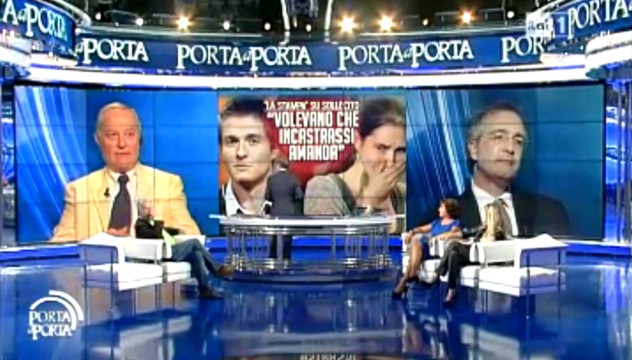
[Image above: Francesco Sollecito, left, trying to defend his loose-canon son on Italian national TV]
What was Sollecito thinking? If he was indeed thinking?
To our Italian lawyers his highly aggressive and inaccurate book seems a really misconceived attempt at an extra-legal end-run, by someone with low credibility and an over-sized ego who still stands accused of murdering Meredith.
Especially in face of an increasingly widespread grasp beyond Italy of the real facts - and of a remarkable Italian Supreme Court appeal by the prosecution which looks to be almost impossible to beat.
Main sources for the “research” by the shadow writer Andrew Gumbel seem to be Nina Burleigh and Candace Dempsey, two PR shills for the Knox family with notorious chips on their shoulders toward Italy. Andrew Gumbel seems to have anti-Italy and competency issues of his own.
None of the three are lawyers. In fact no good lawyers are publicly standing up for the two accused and repeating any of the junk law or false facts or defamatory claims in the book.
Simon & Schuster don’t seem to have insisted on any fact-checking or checking against Italian law. New charges against Sollecito have already been threatened in Italy based on the couple of pages made famous by the Porta a Porta TV program, during which Sollecito’s own father had to distance himself sharply from his son’s claims.
Italian authorities and media read here. We’d like to help them further by identifying just which “facts” are wrong in the book (in places Sollecito even contradicts his own past words) and who is unfairly depicted, which seems to be just about everybody.
Our new book corrections page is here. It can also be reached via the new link in the left column. All help is most welcome.
Thursday, September 27, 2012
Sollecito’s Book Honor Bound Hits Italy And Already Scathing Reactions And Legal Trouble
Posted by Peter Quennell
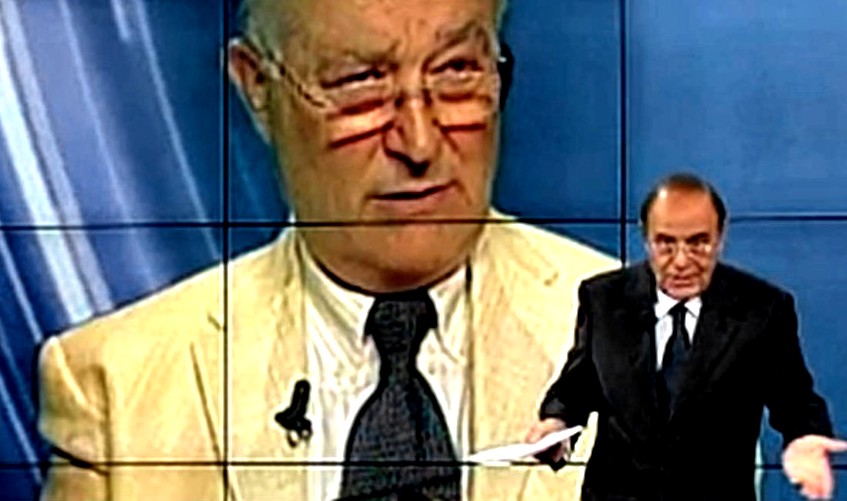
[Above: Sollecito’s father Francesco on Italian national TV being made to admit the book lied]
The Sollecito/Gumbel book is an “own goal”
In Italy the extremely inaccurate and hyper-aggressive book has already set themselves up for two kinds of trouble
The Gumbel and Sollecito book was released in English on 18 September 2012 and within ten days all of Italy knew that the book was a crock.
Sollecito’s own father and own lawyers Bongiorno and Maori have already been forced to admit the book contains serious lies.
Already the prosecution has indicated that they are weighing whether there might be new charges lodged against Sollecito.
Analysis Of 3 Claims Of Criminal Conduct
We focus on three claims by Sollecito and Gumbel of criminal behavior which have already been widely repudiated by the Italian press.
1. A deal was sought by prosecution to frame Knox
Sollecito’s own father Francesco was made to concede by the host and all other guests on the popular Porta a Porta TV show last week that Sollecito lied in claiming that the prosecution had sought a deal under which Sollecito would frame Amanda.
Such a deal would be illegal so Sollecito was falsely accusing prosecutors of a very serious crime. Francesco Sollecito backed down even more in some interviews later. One of Sollecito’s own lawyers, Luca Maori, immediately denied in obvious frustration that the offer of any deal either way ever happened, and Giulia Bongiorno soon publicly agreed. .
2. A long brutal interrogation on 5-6 November 2007
Sollecito has suddenly claimed in the book, nearly five years after he said it happened, in face of vast evidence including his own writings to the contrary, that police interrogated him over 10 hours, and abused and threatened him.
But he was demonstrably not ever interrogated over 10 hours, and he folded fast when they showed him his phone records, which contradicted his earlier alibis, and so he promptly laid the blame on Amanda.
The English translations of the lengthy court transcripts of those many who were present at the central police station on the night all coincide, and damn the version cooked up by Sollecito and Gumbel..
3. Deliberately wrong reasoning in the Galati appeal
All this trouble flows from half a dozen pages of Sollecito’s book made public in Italy! Here now are several more pages not yet known about there (we will have many more) which our poster ZiaK has translated into Italian to help everybody to read. Sollecito ridicules both Dr Galati and his appeal. Let’s see:
- Dr Galati is recognised as one of the most brilliant lawyers in Italy, and he is a former Deputy Chief Prosecutor at the Supreme Court, specially assigned to Perugia because cases involving the central government are handled there when they are too hot to handle in Rome.
- Solllecito is of course a 28-year old student with a cocaine record and a long history of parental supervision who has never held a job in his life. He failed the entrance exam in virtual reality for the University of Verona but still has delusions of a career in computer games.
And surely Gumbel would never have got the job if Bongiorno and Maori had the opportunity to size up how wildly incompetent about the law and the case and and twisted in his mind about Italy he seems to be.
These ill-advised pages below show Sollecito’s and Gumbel’s profound ignorance of Italian jurisprudence, a total incomprehension of the wide scope of the appeal, and their contempt toward the advice from his lawyers.
Passages highlighted are wrong on the hard facts as shown in part 2 below.
1. What The Sollecito/Gumbel book claims
Judge Hellmann’s sentencing report was magnificent: 143 pages of close argument that knocked down every piece of evidence against us and sided with our experts on just about every technical issue. It lambasted both the prosecution and the lower court for relying on conjecture and subjective notions of probability instead of solid evidence. And it launched a particularly harsh attack on Mignini for casting aspersions on the very concept of proof beyond a reasonable doubt.
Mignini had dismissed it in one of his court presentations as a self-defining piece of linguistic trickery. Hellmann pointed out that reasonable doubt was now””belatedly””part of the Italian criminal code. A case built on probability alone, he said, was not sufficient and must necessarily lead to the acquittal of the defendant or defendants.
The prosecution’s rebuttal of the sentencing report, filed a couple of months later, was little short of astonishing.
It accused Hellmann of indulging in circular arguments, the old rhetorical fallacy known to the ancients as petitio principii””essentially, starting with the desired conclusion and working backward. The criticism applied much more accurately to what the prosecution and Judge Massei had done themselves; everything, even the absence of evidence, had been a pretext for them to argue for our guilt. But the author of the prosecution document, Giovanni Galati, chose not to dwell on such ironies. Instead, he attacked Hellmann””I wish I were joking about this””for resorting to deductive reasoning. Making yet more allusions to grand rhetorical principles, Galati said he had a problem with the appeals court taking the available evidence and seeking to make each piece follow on logically from the last. I take it he is not a fan of Sherlock Holmes.
Galati seemed incensed that Hellmann had found the “superwitnesses” unreliable. He argued that Hellmann’s problem with Antonio Curatolo, the heroin addict in Piazza Grimana, was not his failure to be consistent about the details of when and where he had supposedly seen us but rather Hellmann’s own “unwarranted prejudice against the witness’s lifestyle.” Galati even dared to embrace Curatolo’s argument that heroin is not a hallucinogen to insist he must have been telling the truth.
These arguments, to me, made a mockery of civilized discourse. I don’t honestly know how else to characterize them.
From my experience, I also know they are the bread and butter of the Italian legal system, the peculiar language in which arguments and counterarguments are formed every day. Not only do innocents go to prison with shocking regularity, while guilty people, equally often, win reprieve or acquittal; magistrates and judges who make the most howling errors rarely pay for their mistakes.
See Part 3 below for an Italian translation of the above, kindly supplied by main poster ZiaK.
2. Correctly explaining Cassation’s reasoning
Read all the posts here. Also read all the posts linked to here.
Italy’s excellent justice system is in fact exceptionally pro defendant, and prosecutors have to jump through more hoops than any other system in the world. Major errors and framings of innocent parties never make it through to a final guilty verdict.
Correctly understood in light of that system, there was nothing magnificent about the Hellman-Zanetti outcome. The Hellmann court is KNOWN to have been hijacked.
And these posts by Cardiol and James Raper show the report was written by two biased and wrongly qualified judges way out of their depth on both the evidence and the law.
Here is main poster Machiavelli’s explanation of what Sollecito.doesn’t get. The required logic Sollecito is ridiculing is intrinsic to Italian jursprudence (and US and UK jurisprudence) and is REQUIRED by the Supreme Court.
In plain English, Dr Galati is saying that Hellmann-Zanetti ignored that requirement.
Instead, they illegally went cherrypicking, with an extreme pro-defendant bias up-front. Bold text here is to emphasize that.
2. The failure to apply the inferential-inductive method to assess circumstantial evidence. This is a key point based on jurisprudence and is in fact a devastating general argument against Hellmann-Zanetti:
The appeal to Cassation’s jurisprudence on the circumstantial case originates from the fact that the Assize Appeal Court did not deploy a unified appreciation of the circumstantial evidence and did not examine the various circumstantial items in a global and unified way.
With its judgment it has, instead, fragmented the circumstantial evidence; it has weighed each item in isolation with an erroneous logico-judicial method of proceeding, with the aim of criticizing the individual qualitative status of each of them ..
Dr Galati accuses the appeal court of focusing on the quality of some pieces of circumstantial evidence, instead of their correlation to each other as the Supreme Court always requires. .The appeal judges, in actual fact, deny that the probative reasoning and the decisive and cognitive proceeding of the court is to be found in the circumstantial evidence paradigm of the hypothetico-probabilistic kind, in which the maxims of experience, statistical probability and logical probability have a significant weight.
The court must reach a decision by means of the “inductive-inferential” method: it proceeds, by inference, from individual and certain items of data, through a series of progressive causalities, to further and fuller information, so arriving at a unification of them in the context of [13] the reconstructed hypothesis of the fact.
This means that the data, informed and justified by the conclusions, are not contained in their entirety in the premises of the reasoning, as would have happened if the reasoning were of the deductive type “¦ (..) A single element, therefore, concerning a segment of the facts, has a meaning that is not necessarily unambiguous.
Dr Galati cites and explains further:
The Perugia Court of Appeal has opted, instead, precisely for the parceled-out evaluation of individual probative elements, as if each [14] one of them must have an absolutely unambiguous meaning, and as if the reasoning to be followed were of the deductive type.
This error emerges from the text of the judgment itself, but the gravity of the error committed by the Court in its decision derives from the fact that even the individual elements had been acquired by the cognitive-decisioning process in a totally partial manner, isolating the sole aspect that allowed the recognizing of doubts and uncertainties in the element itself..
So Galati-Costagliola concludes ““ and this by now is obvious ““ that the Hellmann-Zanetti court followed a “deductive only” paradigm on pieces in isolation, instead of the “inferential-inductive” paradigm prescribed by Supreme Court requirements (1995).
Moreover, Hellmann-Zanetti applied a deductive paradigm of assessment only to some cherry picked aspects of the single isolated pieces of evidence, overlooking other qualities of the single piece (an example ““ my own ““ is the possible “contamination” of the bra clasp found on the floor in the murder room.) Ordering an assessment of the quality of any element as if it was a proof in isolation from the rest of the evidence is itself unlawful.
But Hellmann”“Zanetti also picked out of the evidence one aspect alone, for example it points to the theoretical possibility of contamination by touching from gloves, but does not consider the negative check results from the possible contamination sources. The interpretation of X-DNA from the bra-clasp by Vecchiotti in the conclusion is worded as if to ignore the results on the Y-haplotype, and so on.
So even single aspects/qualities of isolated items are further isolated from other aspects by Hellmann-Zanetti, and are assessed without looking for a relationship to the context. This is a core violation of the basics of jurisprudence in cases based on circumstantial evidence.
3. Italian Version of the passage on the Cassation appeal from Sollecito’s book
This translation is kindly provided by main poster ZiaK.
Il rapporto di motivazioni del giudice Hellmann fu magnifico: 143 pagine di ragionamenti serrati che demolirono ogni singolo pezzo di prova contro di noi, e che con riferimento a quasi ogni questione tecnica presero le parti dei nostri esperti. Il rapporto strigliò sia la pubblica accusa, sia la corte di prima istanza per il loro affidamento ai congetture e ai nozioni soggettivi di probabilità invece di dipendere su prove solide. Perdipiù, il rapporto sferrò un attaco particolarmente severo su Mignini per aver denigrato il concetto stesso di prova oltre ogni ragionevole dubbio. Mignini aveva già scartato questo concetto come un inganno linguistico auto-determinante nel corso di uno delle suoi presentazioni alla corte. Hellmann fece notare che il dubbio ragionevole fa ormai - tardivamente - parte del codice penale italiano. Una causa stabilita unicament su probabilità , disse Hellmann, non é sufficiente e deve necessariamente condurre all’assoluzione del imputato o degli imputati.
La confutazione del rapporto della parte dell’accusa, presentato in appello un paio di mese dopo, fu quasi una cosa sbalorditiva.
Accusò Hellmann di abbandonarsi a argomentazioni viziosi, in quella vecchia falsità retorica conosciuta dagli antichi come petitio principii - cioè,sostanzialmente, partire dalla conclusione desiderata per poi andare a ritroso. Questa critica potrebbe essere applicata con molto più precisione a ciò che fecero l’accusa e il giudice Massei stessi: tutto - compresa anche la mancanza di prove - gli é servito di pretesto per dare appiglio agli loro argumenti sostenendo la nostra colpevolezza. Ma l’autore di quel rapporto della pubblica accusa, Giovanni Galati, scelse di non soffermarsi su queste ironie. Al contrario, preferii attacare Hellmann - io desideri davvero fossi solo scherzando su questo punto - per il suo aver ricorso al ragionamento deduttivo. Perdipiù, facendo ancora altre allusioni a grandi principi retorici, Galati si dichiarò insoddisfatto del fatto che la Corte d’appello avesse preso prove disponibili e avesse cercato di far seguire in modo logico un pezzo dopo l’altro. Devo supporre che Galati non sia un tifoso di Sherlock Holmes.
Galati sembrò furibondo che Hellmann avesse trovato inaffidabili gli “supertestimoni”. Sostenne che la difficoltà che Hellman terrò a proposito di Antonio Curatolo, il tossicomane della Piazza Grimana, non fu la sua incapacità di ricordarsi con coerenza i dettagli su quando e dove fossimo presumibilmente visti, ma piuttosto il “pregiudizio ingiustificato contro il modo di vivere del testimone” mantenuto del stesso Hellmann. Galati osò persino cogliere l’argomento di Curatolo, secondo il quale l’eroina non é un allucinogeno, per sostenere che Curatolo avesse dovuto dire la verità .
Tali argomentazioni, al mio parere, svuotino il discorso progredìto di tutte le sue valori. In onestà , non saprei descriverli in modo diverso. Nella mia esperienza, so anche che sono il fondamento del sistema giuridico italiano, e della la lingua particolare nella quale gli argumenti e controargumentazioni sono formulati ogni giorno. Non solo gli innocenti vengono incarcerati con preoccupante frequenza, mentre le persone colpevoli con altrettanto frequenza ottengono sospensione o assoluzione, ma anche i magistrati ed i giudici che fanno gli più strepitosi errori pagano raramente per i loro sbagli.
.
[Below: Sollecito’s lead lawyer Bongiorno. Still in shock? She has made no statement yet on his book]
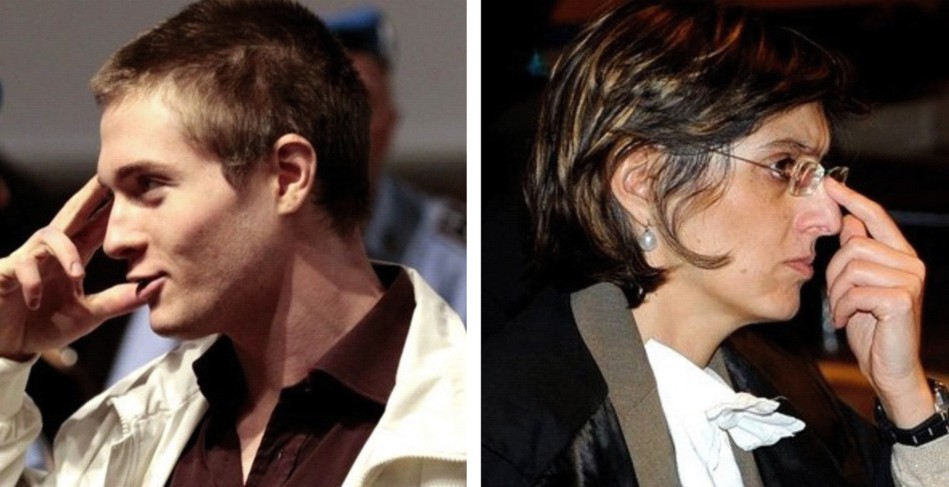
Wednesday, September 26, 2012
Kane Hall Book Promotion: Interviewer And Sollecito Panderer Dennis Bounds Drops The Ball Terribly
Posted by Media Watcher
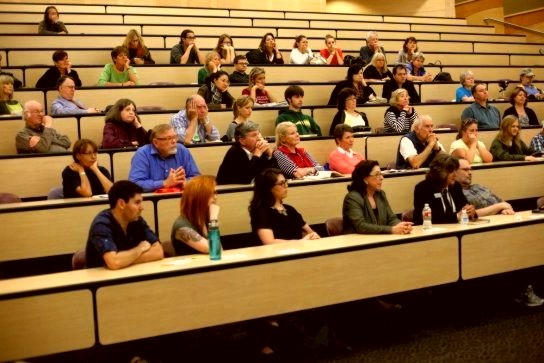
[Above: Amanda Knox’s mother and sister are to the right in the back row in white and red sweaters]
Sales statistics show that Sollecito’s book is selling terribly and light-years from recouping costs.
Tonight’s public interview showed one good reason why. A small mostly elderly entirely white crowd in Kane Hall heard Sollecito being allowed to blame it solely on the black guy. Not even his own lawyers did that. But there was no argument from the interviewer, no tension, no excitement, no sense of discovery or truth.
And the feeble questions moved on.
Dennis Bounds, anchor for KING-5 television news in Seattle, certainly demonstrated why he’s no journalist. After tossing softball after softball at Sollecito during an “interview” at UW’s Kane Hall and then teasing Sollecito that he should come to the UW as an exchange student, Bounds declared “You’re out of jail and you’re not guilty - which is the important thing.”
Untrue. Sollecito still stands accused of Meredith’s murder until the Supreme Court signs off on the case. The pandering Dennis Bounds was eagerly first in line to get a book signed by the accused. See the image at bottom.
The problem with most of the US media is that they’ve never taken the time to review the case, including the original Massei sentencing report (which gives very thoughtful, not sensational, overview of the evidence and how it ties together), what was reviewed during the appeal and what specific elements should have been under review, and what that means for the prosecutor’s appeal that’s now been submitted to Italy’s Supreme Court.
Hard questions a real journalist could have asked
These are examples of what Dennis Bounds could have asked Sollecito in direct follow-up to answers that Sollecito gave tonight, instead of moving on to the next softball.
Sollecito: After ten hours of questioning in a very rude, aggressive way”¦(one of the detectives said) “If you stand up now, I will leave you in a pool of blood.”
Journalist: Are you asserting that one of the detectives threatened you? Did you relay this to your family and ultimately to your attorneys?
Sollecito: No one ever asked me to be on the witness stand. No one ever asked me anything. I was a shadow.
Journalist: Who prevented you from testifying? Did you want to testify? Did you ask your attorneys to let you testify? Given that you were willing to testify, what can you say here tonight about why you gave so many versions of what you were doing the night the murder took place.
Sollecito: For any kind of detail, I’m here; you can ask me.
Journalist: Why did you tell detectives that there was a burglary, but nothing was taken before the room in question was even checked out? And given that it wasn’t your room, how did you know that nothing was taken?
Journalist: You and Amanda claimed that you needed to get a mop from Amanda’s flat to wipe up under a leaky sink. Why would you wait hours to go get a mop unstead of just sopping up the water with towels from your own flat?
Sollecito: Most of the people who are “guilters” follow the media and don’t know anything about the case.
Journalist: If that’s the case, why are they asking questions about how Meredith’s fresh blood got mixed with Amanda’s DNA in multiple places in the bathroom, and why are they so focused on phone records that showed that what you told detectives originally was untrue.
Sollecito: (About Rudy Guede) - He is a burglar who did similar burglaries”¦..he’s most probably implicated; he’s most probably the only one.
Journalist: If Guede was the only person there that night, where did the other footprints come from, how did Amanda’s DNA get mixed with Meredith’s blood, and who do you think staged the break-in, after making sure Meredith’s room was locked?
Journalist: And by the way, can you explain why Amanda Knox called her mother in the middle of the night, Seattle time, given that to that point, she should not have known anything about the dark events that had taken place in the flat? Were you with her when she made that call?
Tuesday, September 25, 2012
Will Sollecito Drop Amanda Knox In It Further In A Public Seattle Interview At 7:00 PM Tonight?
Posted by Peter Quennell
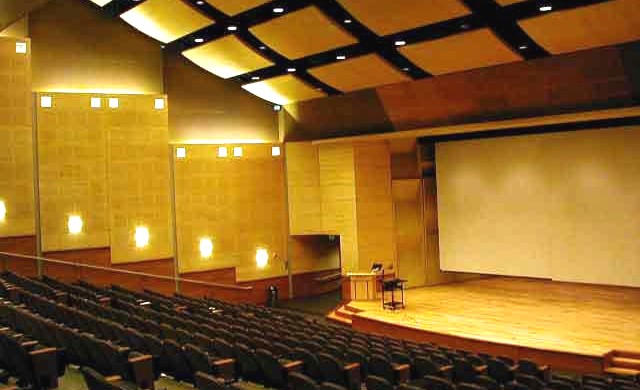
This is Kane Hall on the University of Washington campus where at 7:00 tonight Sollecito is set to be interviewed.
What was described in this excellent series by an Italian lawyer on four of the Porta a Porta shows continues to be the case. One perp slyly pushing another toward the fire, in an attempt to protect his own sorry ass.
On two levels the woolly-brained component of the Seattle media and the woolly-brained Knox-Mellas camp seem to have only the dimmest comprehension of the slow-motion train-wreck Sollecito has managed to create.
(1) Sollecito may continue to claim that he “saved” Amanda by standing by her when others urged not to, but as future posts here will show, he provably didnt, and in his book in a number of places he includes very incriminatory points about her.
(2) Provable lies in Sollecito’s book have already stirred up a hornet’s nest in Italy and his own father and his lawyers have backed off - right when RS and AK face one of the toughest appeals our Italian lawyers have ever seen.
Can Sollecito be expected to make things worse both for Amanda and for himself tonight? It may not be obvious to much of the audience, but our own bet is: for sure. Must-read posts in advance here and here and here.
And a must-read book. That narcissistic killer flaunted the system - and is now doing 33 years.
Thursday, September 20, 2012
Dr Galati: Here On American TV Tonight Raffaele Sollecito Apparently Commits Felony Defamation
Posted by Peter Quennell
Right now, Raffaele Sollecito, an Italian, is swanning around the United States with the apparent sole purpose of making his home country look bad.
As he is still accused of murder and other felonies until the Supreme Court signs off on the case, and accused felons are normally never allowed to enter the US by Immigration, it seems Sollecito could be here in the US illegally.
This video above was recorded from the Anderson Cooper news program on CNN at 8:45 pm tonight.
Here Raffaele Sollecito claims to have been abused and threatened by interrogators and claims that the same thing happened to Amanda Knox. He implies that he held out for hours, and that Knox was interrogated for 10 hours.
This seems to our lawyers precisely the same kind of invented malicious claim against interrogators which has resulted in both Amanda Knox and her parents being sued for felony defamation (calunnia) by police officers present when she was interrogated.
We know that both Sollecito’s own father Francesco AND HIS LAWYER Mr Maori have just indicated on national Italian TV that Sollecito was lying when he made this and other claims in his book. He has zero evidence to prove it, and he cannot point to anyone who abused him.
Sollecito had more than four years at trial and appeal and on national TV and privately with his lawyers to lodge such charges of abuse - and yet he never did. Not once did he ever advance them even though they might have got him off.
He did not even mention it in his nationally televised interview in Italy soon after he was released. He had to come to America to start making it - as blackmail, to make the Knox forces get him a resident visa? .
What do we believe really happened? This is from our July 2009 post on Sollecito’s many alibis.
Sollecito was asked to return to the police station on 5 November to answer some more questions. He was at that time confronted with telephone records that proved that he and Amanda Knox had lied previously.
So for his third alibi, which now cut Amanda Knox loose and implicated her, Sollecito claimed that he was at his apartment all evening, and that for part of the evening Knox was out, from 9 pm to 1 am.
In my previous statement I told a load of rubbish because Amanda had convinced me of her version of the facts and I didn’t think about the inconsistencies…..
Amanda and I went into town at around 6pm, but I don’t remember what we did. We stayed there until around 8.30 or 9pm.
At 9pm I went home alone and Amanda said that she was going to Le Chic because she wanted to meet some friends. We said goodbye. I went home, I rolled myself a spliff and made some dinner.”
He goes on to say that Amanda returned to his house at around 1am and the couple went to bed, although he couldn’t remember if they had sex.
How did things proceed from there? Did Sollecto or his lawyers claim that he had been tricked or abused into a “confession” ? No…
This third alibi was undercut by Amanda Knox when she took the stand and testified. She stated that she was with Sollecito at his place all night.
It was also contradicted by the forensic evidence presented by the prosecution: the four separate pieces of forensic evidence that placed him in the cottage on Via Della Pergola on the night of the murder.
This third alibi was also undermined by the telephone records and by the data taken from his computer.
Sollecito claimed that he had spoken to his father at 11 pm. The phone records showed that to the contrary, there was no telephone conversation at this time, though Sollecito’s father had called him a couple of hours earlier, at 8.40 pm.
Sollecito claimed that he was surfing the internet from 11 pm to 1 am. Marco Trotta, a police computer expert, testified that the last human interaction on Sollecito’s computer that evening was at 9.10 pm and the next human activity on Sollecito’s computer was at 5.32 am.
Sollecito said that he downloaded and watched the film Amelie during the night. However, Mr Trotta said that the film had been watched at around 6.30 pm, and it was earlier testified that Meredith returned to the cottage she shared with Amanda Knox at about 9 pm.
Sollecito claimed that he had slept in until 10 am the next day. There was expert prosecution testimony that his mobile phone was actually turned on at 6.02 am. The Italian Supreme Court remarked that his night must have been “sleepless” to say the least.
This alibi was undermined by the eyewitness Antonio Curatolo, the watcher in the park above the house, who testified that he saw Sollecito there.
From 2007 to 2011 Solleceto was rather notorious for NOT reaching out to Amanda Knox during trial and appeal and for NOT fully supporting her alibi. He has never retracted the statement that she was absent from his house from 9:00 pm to 1:00 am on the night Meredith was murdered.
This may be giving the Knox-Mellases some grins. They despise Sollecito, and they know full well of his treachery toward Amanda during trial when his own lawyer Bongiorno repeatedly blamed Knox (scroll down). They are presumably appalled at his loose lips and dishonest book which mess with her own prospects. .
the book’s title is a living lie. There is nothing honorable about him. And he is acting treacherously and cowardly toward his own country.
Wednesday, September 19, 2012
The Rather Strained Couric-Sollecito Interview: Reading Between The Lines (1)
Posted by Hopeful

Raffaele’s physical appearance was okay. He was groomed and dressed well. I alternately felt sorry for him and grossed out by him when I sensed he was lying from a cunning script.
He has taken a page out of Amanda’s playbook by using English instead of his native Italian with a translator, so the audience will identify with him and so he can buy time to formulate safe answers. He wants to show off to Amanda that he is as quick to master language as she is.
Katie Couric definitely put him on the defensive. Her maturity and restraint honed over years of interviews gave her the advantage. It must be so hard to smile and remain polite when you harbor suspicions you’re talking to a liar and stonecold killer. Her civility and training stood her in good stead.
She didn’t reveal too much disgust, but some slipped out. She did poke and prod for hard truth as much as possible within the limited format.
I think the biggest clue to Raffaele’s dishonesty was his refusal to denounce Meredith’s “real” killer, Rudy Guede. Had he not been part of the violence or obstruction of justice against Meredith, he would have the moral high ground to express natural horror rage and resentment against this “real” killer, a killer whose act has also destroyed Sollecito’s life.
If he were totally innocent, Raffaele would want only to name and shame Guede and howl for the harshest punishment. If Guede had gotten me involved in such a nightmare I would blame him without regret and with no game-playing or fear of his lies. The fact that Raf does not dare to anger Guede and refuses to judge the known killer who has dropped Raf into a living hell is a sign of some perverse obligation to Guede, fear of Guede, or guilty knowledge or some unnatural response.
He refuses to denounce Guede, while he revels in his coverup for Amanda. This suggests he is part of the crime. He denounces prison loudly enough! He seemed to want to say that prison serves absolutely no purpose at all, incarceration accomplishes nothing. This is simply a reflection of how much he hated prison, not how little he deserved it.
His big glory seems to be bucking his family, and rejecting their good advice, while professing to understand they are blinded by love and concern for him.
His tone is condescending. No, he will spare his family nothing. He prefers to turn his back on their best interests (which would be to have a son who could earn a solid living and eventually help his father in old age or sister, has Raf ever thought of success as a gift he can give them? No, it seems he wants drama and destruction and waste).
While his book claims Dr. and Sister Sollecito were begging him to reveal the truth regardless of whether it hurt Amanda or not, he turns his back on them and on truth completely. His desire is to honor a wildcat female who used him and cost his father and sister everything.
What a mockery of real honor. He’s ready to save Amanda a prison sentence no matter how big a liar he must become or how much terror he brings to his family or expense and stress on them. His childish and mistaken attitude was that Amanda loves him, Amanda is all that matters.
Thus he becomes a foolish and destructive ennabler, saving Amanda from the natural results of her own bad acts that would finally teach her something real. He wants to rescue her and his vanity since she reflects his romantic choice and he doesn’t want that criticized.
He will rescue her at cost of destroying the family who has truly loved him and stood by him, even though he has so many unresolved issues with them. I think this is because he has not felt strong enough to stand up to his family in the normal teenage years of establishing boundaries, usually through mild rebellion.
His fear of losing his father since he was motherless, or their overbearing powerful personalities (doctor and policeman) left his growth undone at the normal time. He is still a child. But his role in this crime has become a way out for him.
Raf is in hog heaven. He can emigrate from Italy to the U.S. for survival reasons that his folks must understand, since they assure him they don’t want him in prison. This is his way to get others to boot him to where he wanted to go all along. (Munich wasn’t far enough, and he was soon back home dejected.)
His biggest joy seems to be deceiving the police. His sister’s biggest mistake was doing shady stuff to help this ingrate brother, and his father will learn the same lesson.
It’s really sad because Dr. Francesco Sollecito Senior deserves better than this from his only son. Raf wants to lower the bar on their expectations of him. In that he has succeeded. His main goal is to disappoint his father and compromise his sister since he cannot compete with their workplace achievements and no longer has a mother to protect.
Raffaele took another page from Amanda by giving a lengthy and ambiguous answer to the question, “What would you say to people who still think you are guilty?” He never gets around to categorically denying he killed Meredith! Instead he harps on the media having deceived the public.
Of course the fog of nonsense is his own and Amanda’s.

